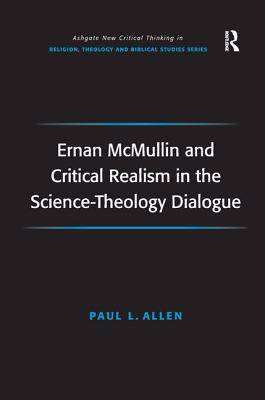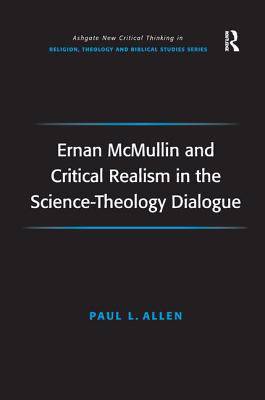
- Afhalen na 1 uur in een winkel met voorraad
- Gratis thuislevering in België vanaf € 30
- Ruim aanbod met 7 miljoen producten
- Afhalen na 1 uur in een winkel met voorraad
- Gratis thuislevering in België vanaf € 30
- Ruim aanbod met 7 miljoen producten
Zoeken
Ernan McMullin and Critical Realism in the Science-Theology Dialogue
Paul L Allen
€ 305,45
+ 610 punten
Uitvoering
Omschrijving
Scientists, philosophers and theologians have wrestled repeatedly with the question of whether knowledge is similar or different in their various understandings of the world and God. Although agreement is still elusive, the epistemology of critical realism, associated with Ian Barbour, John Polkinghorne and Arthur Peacocke, remains widely credible. Relying on the lifetime work of philosopher Ernan McMullin, this book expands our understanding of critical realism beyond a permanent stand-off between the subjective and objective, whether in science or theology. Critical realism illuminates the subject and the objectively known simultaneously. Responding to criticisms made against it, this book defends critical realism in science and theology with a specific role to play in our understanding of God.
Specificaties
Betrokkenen
- Auteur(s):
- Uitgeverij:
Inhoud
- Aantal bladzijden:
- 214
- Taal:
- Engels
- Reeks:
Eigenschappen
- Productcode (EAN):
- 9780754652830
- Verschijningsdatum:
- 28/07/2006
- Uitvoering:
- Hardcover
- Formaat:
- Genaaid
- Afmetingen:
- 156 mm x 234 mm
- Gewicht:
- 480 g

Alleen bij Standaard Boekhandel
+ 610 punten op je klantenkaart van Standaard Boekhandel
Beoordelingen
We publiceren alleen reviews die voldoen aan de voorwaarden voor reviews. Bekijk onze voorwaarden voor reviews.








